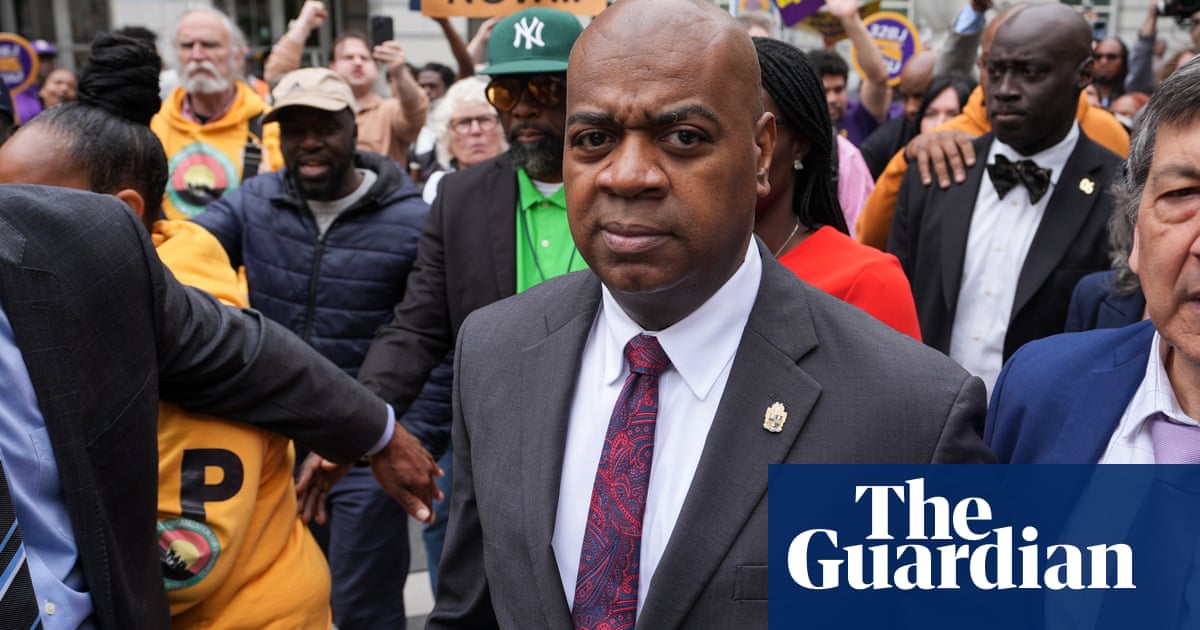Ras Baraka, theDemocraticmayor of Newark, said federal prosecutors were seeking to “humiliate and degrade” him by making him give fingerprints and have a mugshot taken for a second time on Thursday.
The move came after a court appearance on a trespassing charge stemming from hisarrest at an immigration detention centerwhere he was protesting with several members of Congress.
The charges against Baraka have unfolded amid fears that theTrump administrationis seeking to prosecute Democratic politicians, judges or others who have opposed its policies.
Baraka appeared in court for a roughly 15-minute procedural hearing before magistrate judge André Espinosa. The hearing covered mostly scheduling for discovery in the case, which stemmed from an encounter on Friday outside the Delaney Hall immigration detention center.
Assistant prosecutor Stephen Demanovich said the government disputed Baraka’s claims that he committed no crime and was invited on to the facility’s property. Confusion over whether Baraka had been fingerprinted and processed after his arrest unfolded after the judge brought the proceedings to a close.
As the parties began to walk away, the judge added that the mayor would need to be processed by the US Marshals Service and that it would take 10 minutes. Baraka, looking confused, said he had already been processed after his arrest. The judge said “agents” had processed him but not the marshals.
“Let’s go,” Baraka said, before indicating he would go with the marshals.
Speaking to a crowd of supporters outside court, Baraka addressed why it took him a while to emerge from the building.
“They’re trying their best to humiliate and degrade me as much as they possibly can,” he said. “I feel like what we did was completely correct. We did not violate any laws. We stood up for the constitution of this country, the constitution of the state ofNew Jersey.”
The trespassing charge against Baraka carries a maximum sentence of 30 days in prison.
One of Baraka’s attorney’s, Rahul Agarwal, said the defense expected to seek to dismiss the charges because the mayor was arrested by federal agents on private property. He added that it was a “selective prosecution” and that only the mayor had been arrested.
Demanovich said the government disputed that but did not go into detail.
Baraka has been an outspoken opponent ofDonald Trump’s immigration crackdown and a vocal opponent of the facility’s opening.
In video of the Friday altercation shared with the Associated Press, a federal official in a jacket with the homeland security investigations logo can be heard telling Baraka he could not enter because “you are not a Congress member”.
Baraka then left the secure area, rejoining protesters on the public side of the gate. Video showed him speaking through the gate to a man in a suit, who said: “They’re talking about coming back to arrest you.”
“I’m not on their property. They can’t come out on the street and arrest me,” Baraka replied.
Minutes later, several Immigration and Customs Enforcement (Ice) agents, some wearing face coverings, surrounded him and others on the public side. Baraka was dragged back through the gate in handcuffs.
Delaney Hall is a two-storey building next to a county prison and formerly operated as a halfway house. In February, Immigration and Customs Enforcement awarded a 15-year contract to theGeo Group Incto run the detention center.
Politicians and activists have said facility has been reopened in contravention of local ordinances and without the necessary permits. It is the largest such facility in the north-eastern US, and the first to open during Trump’s second term,according to Ice.
A trial date for Baraka has not yet been set.
The Associated Press contributedreporting
